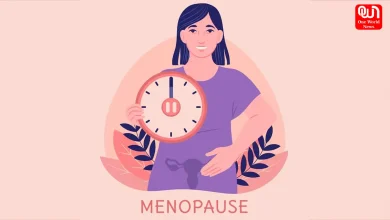Why Therapy? The Most Common Reasons to See a Therapist

The Benefits of Therapy: Reasons to See a Therapist for Improved Well-Being
Life can be challenging, and we all face difficult times that can leave us feeling overwhelmed, anxious, or depressed. It’s natural to feel isolated or helpless during these times, but the good news is that there is help available. Therapy is an effective approach that can provide individuals with a safe and confidential space to discuss their struggles with a trained professional who can offer support and guidance.
Whether you’re dealing with mental health issues, relationship problems, or life transitions, therapy can be an essential tool for improving your overall well-being. Therapists can help you develop new coping skills, build resilience, and work towards achieving a more fulfilling life. With their support, you can learn to navigate through challenges, process your emotions, and overcome obstacles that may be holding you back.
At its core, therapy is about connecting with another human being who understands and cares about your struggles. It’s about having a place to share your thoughts, feelings, and experiences without fear of judgment or rejection. Through therapy, you can gain the tools and insights needed to manage your emotions, overcome obstacles, and live a more fulfilling life. So if you’re struggling with any of life’s challenges, don’t hesitate to seek out the support of a therapist. They’re there to help you, and together you can work towards a brighter future.
In today’s fast-paced world, it is common for individuals to feel overwhelmed, stressed, or anxious. While there are many ways to cope with these feelings, one effective approach is therapy. Therapy can be beneficial for a variety of reasons, and it is not just for people who have severe mental health issues. In this article, we will explore the most common reasons to see a therapist and why therapy is essential for overall well-being.
Mental Health Issues
One of the most common reasons to see a therapist is for mental health issues. Mental health problems, such as depression, anxiety, and bipolar disorder, can be debilitating and interfere with daily life. Therapy can help individuals manage these conditions by teaching coping skills, providing support, and offering a safe space to discuss their feelings.
For individuals who have severe mental health issues, therapy may be combined with medication to achieve the best results. However, even for those with mild to moderate mental health problems, therapy can provide significant benefits.
Relationship Issues
Relationships can be complicated, and many people struggle with issues related to family, romantic partners, friends, or co-workers. Therapy can be helpful in navigating relationship issues by providing a neutral space to discuss problems, teaching communication skills, and identifying unhealthy patterns.
Therapists can help individuals learn to set boundaries, express their needs effectively, and identify and address issues within the relationship. This can lead to healthier relationships and a more fulfilling life.
Trauma
Trauma can have long-lasting effects on an individual’s mental and emotional health. It can be challenging to overcome without professional help. Therapy can help individuals process trauma by providing a safe space to discuss their experiences, teaching coping skills, and guiding them through the healing process.
Therapists who specialize in trauma can help individuals work through emotional pain, develop healthy coping mechanisms, and build resilience.
Self-Improvement
Therapy can be beneficial for those who want to improve themselves and their lives. Individuals may seek therapy to work on personal growth, self-esteem, or self-awareness. Therapy can provide a space for individuals to explore their thoughts, feelings, and behaviours, and identify areas for improvement.
A therapist can help individuals identify their strengths and weaknesses, set goals, and develop a plan for personal growth. This can lead to increased self-confidence, improved relationships, and a more fulfilling life.
Read more:- Sleep Divorce: Sleeping in Separate Beds Can Save Your Relationship
Stress Management
Stress is a common experience for many individuals, and it can have significant effects on physical and mental health. Therapy can help individuals learn stress management techniques, such as mindfulness, relaxation, and cognitive-behavioural therapy.
Therapists can help individuals identify the sources of stress in their lives and develop healthy coping mechanisms. This can lead to improved mental and physical health, increased productivity, and a more balanced life.
Life Transitions
Life transitions, such as moving, starting a new job, or becoming a parent, can be challenging and stressful. Therapy can help individuals navigate these transitions by providing support, guidance, and coping skills.
Therapists can help individuals process their feelings about the change, identify challenges and opportunities, and develop strategies to cope with the transition. This can lead to a smoother transition, reduced stress, and increased resilience.
Addiction
Addiction is a complex issue that can be difficult to overcome without professional help. Therapy can be an essential component of addiction treatment by providing support, guidance, and coping skills.
Therapists can help individuals identify the underlying causes of addiction, develop strategies to manage triggers and cravings and build a support system. This can lead to long-term recovery and a more fulfilling life.
Grief and Loss
Grief and loss can be overwhelming and emotionally challenging. Therapy can help individuals process their feelings, provide support
Like this post?
Register at One World News to never miss out on videos, celeb interviews, and best reads.







